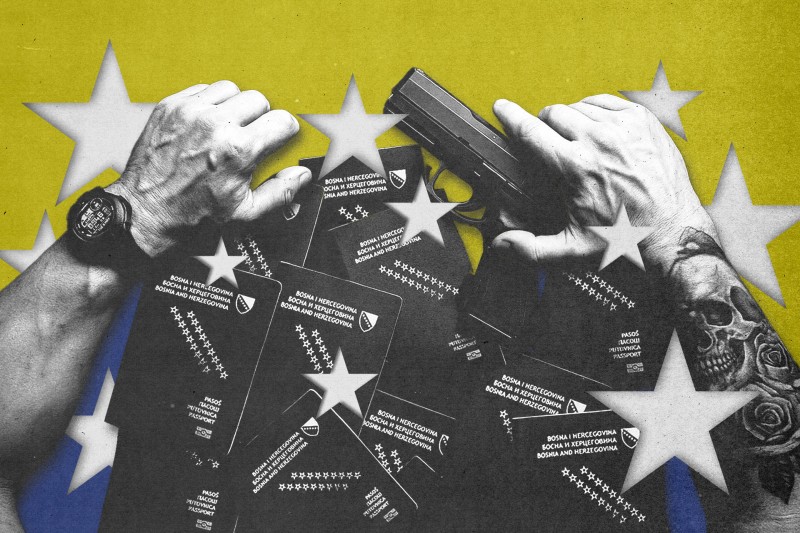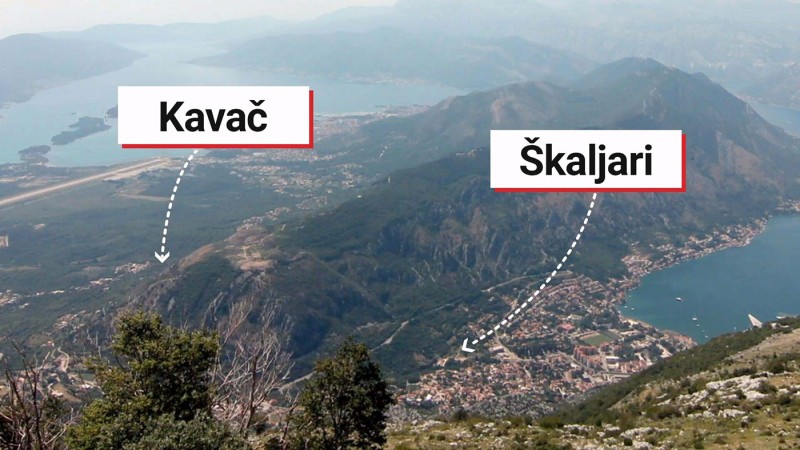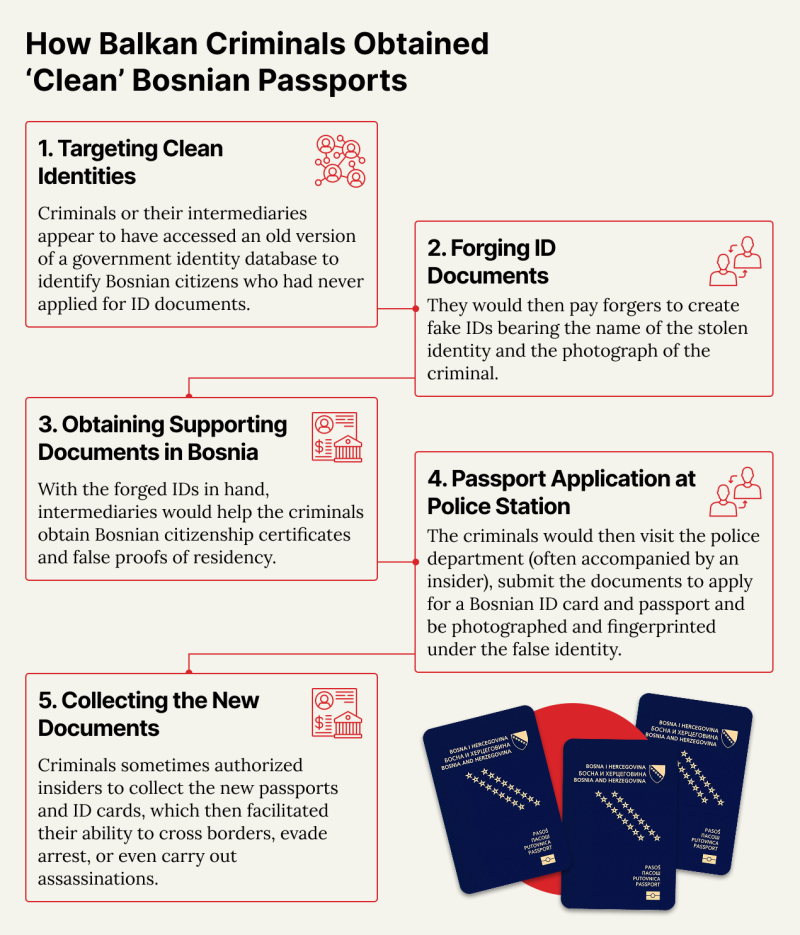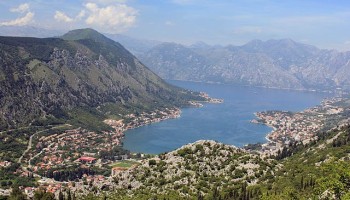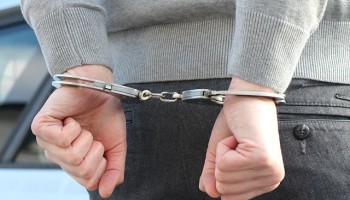Reported by
Dozens of violent criminals have fraudulently obtained Bosnian passports in the past decade, taking advantage of an insecure government database to steal the identities of ordinary citizens, a new investigation by the Center for Investigative Reporting (CIN) has found.
The passports allowed them to travel freely, build new lives abroad, and continue their criminal activities — including drug smuggling and committing violent crimes — under false identities.
After reviewing hundreds of pages of investigative reports from police and prosecutors, indictments, and court verdicts, journalists at CIN discovered that at least 60 members of some of the Balkans’ most powerful and violent organized crime groups had obtained Bosnian passports under false pretenses between 2013 and 2022.
Among them are key figures in the Kavač and Škaljari gangs, two major drug-dealing crime groups whose deadly rivalry has spilled blood across Europe in recent years.
The rival Kavač and Škaljari gangs originated in two tiny Montenegrin villages separated by a mountain, but grew into major forces in Balkan organized crime.
While the criminals used their new passports to move freely, others were not so lucky: CIN reporters spoke with two Bosnian nationals who were flagged at border crossings or questioned by police after having their identities stolen. They were left to untangle the legal and emotional fallout of crimes they had nothing to do with.
“Victims of identity theft face numerous challenges both in their home countries and internationally — even something as basic as crossing borders can become a problem,” said Muhamed Budimlić, a professor of criminology at the University of Sarajevo.
Budimlić said that government bodies responsible for protecting personal data and issuing ID documents were poorly coordinated in Bosnia and Herzegovina, which has a complex, highly decentralized system of governance stemming from the peace agreement that ended its 1990s war.
The gangs relied on paid intermediaries who appear to have been able to access a version of Bosnia’s central identification database, according to multiple law enforcement sources who spoke to CIN on condition of anonymity. This would have allowed them to identify Bosnian citizens living abroad, often in neighboring Serbia, who had never applied for identification documents and did not have fingerprints already in the system.
After identifying their targets, the criminals or their intermediaries would pay forgers to create fake IDs using the names of the Bosnian nationals, but bearing the criminals’ photographs. From there, they could obtain other official documents, like citizenship certificates and residency papers, and eventually apply for passports.
Bosnia’s agency for identification documents, known as IDDEEA, initially declined to comment on whether an identity database may have been leaked.
After the publication of this story, IDDEEA followed up to say there was no evidence that the central registry maintained by the agency had been compromised.
“All registries are highly protected and monitored,” IDDEEA said.
“The use of documents with false identities is a result of organized crime, forgery, and corrupt networks which do NOT include access to IDDEEA databases, but rather abuses within certain local structures that are the subject of active investigations and prosecutions,” the agency added.
A New Identity for a Deadly Mission
In June 2021, a man walked into a police station in Banja Luka, the second-largest city in Bosnia and Herzegovina, to apply for a Bosnian passport.
In support of his application, he submitted an identity card bearing the name Andrej Jović, a Bosnian citizen who had moved to Serbia years earlier.
But the photograph on the ID wasn’t of Jović — instead, it bore the distinctive blond hair and square head of Radoje Živković, a high-ranking member of the Kavač clan.
Živković had allegedly paid a former police officer, Dalibor Ćurlik, to help him pose as “Jović,” according to a subsequent police investigation.
Ćurlik — who was arrested in August 2021 and is still under investigation — had already falsely declared that Živković lived at his mother’s house in Banja Luka so the Serbian could obtain the residency certificate he needed for his Bosnian passport, police records from the investigation show. An associate, meanwhile, picked up a citizenship certificate.
When all the documents were ready, Ćurlik accompanied Živković to the city’s police station and helped him fill out the paperwork for his passport application. Surveillance footage obtained by CIN shows Živković being fingerprinted and photographed for his new Bosnian documents.
Shortly afterwards, in July 2021, the passport was ready and Živković authorized Ćurlik to fetch it for him. With his clean passport and new name, Živković flew from Sarajevo to Istanbul before the end of the month, according to border control records.
The following year, two men riding a motorbike in Istanbul’s upscale Şişli district opened fire on a car carrying the leader of the rival Škaljari gang, Jovan Vukotić, who was killed instantly. (His wife and child were also in the car, but were not injured.)
The assassination had been organized by Živković, according to the Turkish court that sentenced him to life in prison earlier this year. When Turkish police arrested him, they found the Bosnian passport bearing his photo and the name Andrej Jović.
Živković was not the only criminal who Ćurlik helped obtain a Bosnian passport, according to the police records obtained by CIN. He is also accused by police of working with four other would-be Bosnian citizens to obtain fraudulent documentation.
The method was always the same: Ćurlik falsely registered his clients at his mother’s address in Banja Luka to provide proof of residence, while an accomplice provided the necessary citizenship certificates. Ćurlik then escorted his clients to the police department, guided them through the paperwork, and was authorized to collect their passports.
In mid-June 2021, for instance, surveillance cameras in the Banja Luka police station recorded Ćurlik alongside Marko Petrović, a Serbian who had been convicted of violent behavior and endangering public safety, as he submitted a passport application under the name Đorđe Suša. Ćurlik collected Petrović’s new passport on June 17.
Several months later in August, another member of the Kavač clan, Almir Jahović, also appeared at the Banja Luka police station with Ćurlik to apply for a passport. At the time, Jahović was wanted by Interpol for his alleged role in the attempted murder of two rival gang members in Bar, Montenegro.
The very next day, Ćurlik collected the documents on his Montenegrin client’s behalf. But Jahović never got a chance to use his freshly issued passport. During the handover of the new document, Jahović, Ćurlik, and a man who had been providing citizenship certificates were arrested in Banja Luka. The Montenegrin national was soon extradited to his home country.
The Škaljari Clan’s Passport Pipeline
While Kavač relied on their network in Banja Luka to secure false identities, the rival Škaljari were also getting their hands on clean passports using their own intermediaries in Bosnia’s north.
According to an investigation launched by prosecutors in 2020, their key contact was Nikola Vein, a Serbian national who himself possessed a forged Bosnian passport. Thanks to Vein’s connections in Brčko, a small autonomous district along Bosnia’s border with Croatia, at least 12 members of the Montenegrin gang received Bosnian passports in 2020.
Prosecutors allege Vein charged roughly 5,000 euros per passport. (He is still under investigation and hasn’t been indicted.) His method was allegedly almost identical to the one Ćurlik used in Banja Luka: The criminals presented forged ID cards, with their own photographs but the names of Bosnian citizens whose identities they had stolen.
Finding the Man Who Sold 75 Passports
According to police, one of Vein’s most notorious customers was Ratko Živković (no relation to Radoje Živković), a member of the Škaljari clan who later switched allegiance to the Kavač gang.
He obtained his fraudulent Bosnian passport in 2020, which is the same year he would go on to allegedly play a central role in the assassination of Škaljari leader Alan Kožar and his close ally on the Greek island of Corfu, according to a Serbian indictment.
Internal police correspondence from the time doesn’t provide other details, including whether the passport was issued in advance of the murder in Greece. Živković is currently at large.
Entering Bosnia On A Mission
Stopped At The Border
While Živković has managed to evade law enforcement, the person whose name he stole has had to contend with a visit from police to his farm.
Predrag Đurđević, a Bosnian citizen living in the northwestern Serbian village of Bački Brestovac, left Bosnia with his family during the war-torn 1990s. Like others from the community, Đurđević had retained Bosnian citizenship but had never applied for a Bosnian passport.
Đurđević, whose identity was stolen in 2020, said police officers came to his home to question him about possible fraud.
His cousin and neighbor, Đurađ Trivunović, also had his identity stolen by a criminal: Dejan Pavlović, a convicted drug trafficker and a member of the Škaljari clan from Belgrade.
Trivunović had never heard of Pavlović until his own life was suddenly interrupted at the border.
It was a scorching day in late August 2022 when Trivunović packed up his car and drove toward Bosnia and Herzegovina with his wife and her family. But at the crossing an officer took his passport, scanned it — and everything stopped.
“They told me to wait for inspection,” Trivunović said.
A red Interpol alert had flashed in the system. Border officers suspected him of being an internationally wanted criminal. For the next two hours, the family waited in the heat while police tried to untangle the confusion. His mother vividly remembers the moment.
“My blood pressure went up. The officer tried to calm me down and said, ‘Ma’am, I’m sorry, I know you’re a mother, I know this isn’t easy for you.’ And then the baby was crying too, in the sun.”
Eventually, authorities confirmed that Trivunović was not the man they were looking for, and the family was allowed to cross the border. But two days later, when they returned to Serbia, it happened again.
To stop the repeated alerts, Trivunović had to hire a lawyer and obtain a certificate from the criminal police in Brčko verifying that his identity had been stolen. Still, the uncertainty lingers.
“It’s still not clear,” he said. “It still feels like I’m flagged.”
Correction: This story previously mentioned the database of Bosnia’s central agency for identification, known as IDDEEA, as the source of leaked identification information, but there is no conclusive evidence that information was leaked from IDDEEA or a previous database. The reference has been removed for clarity. The story has also been updated to include a comment from IDDEEA.
